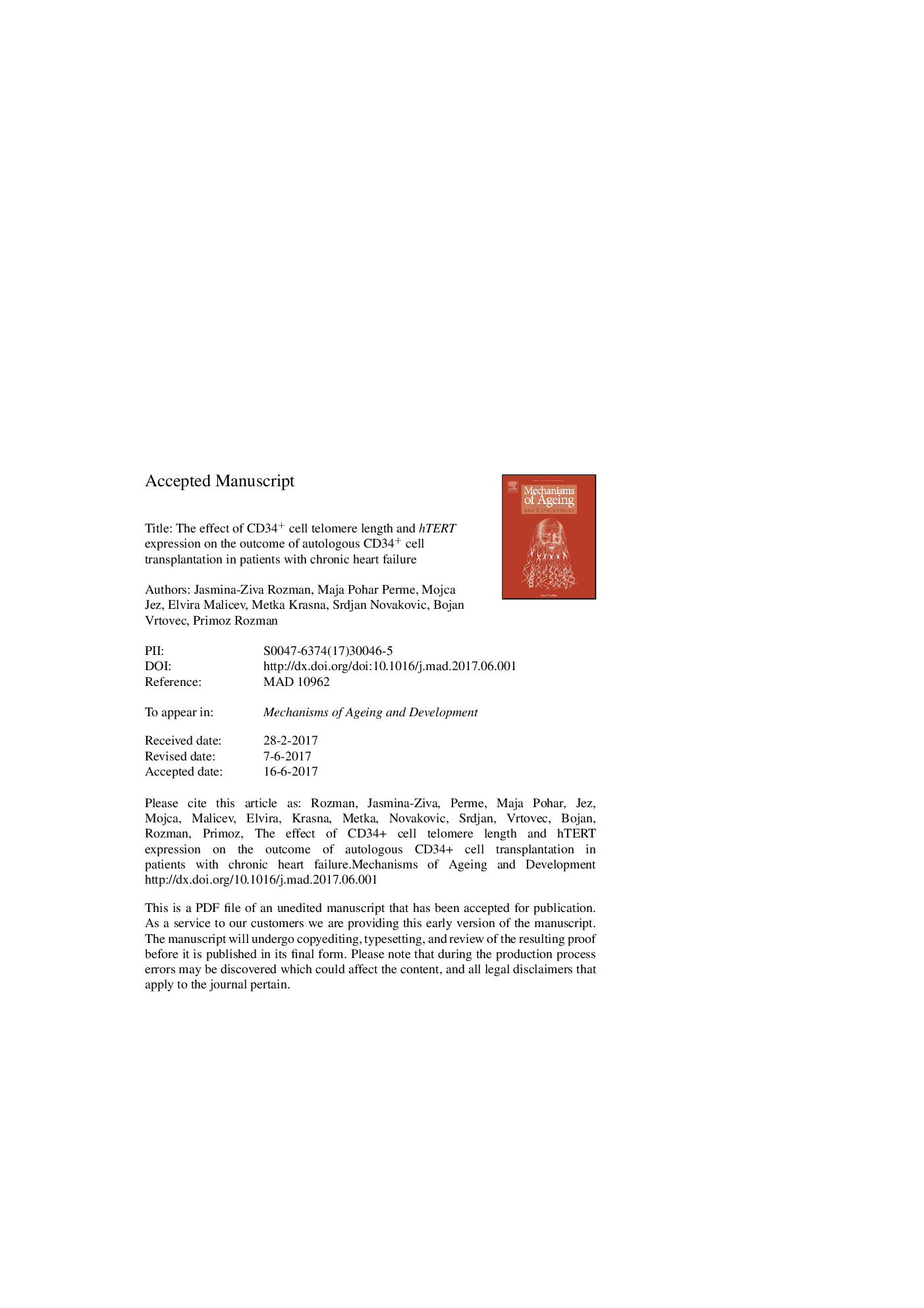| Article ID | Journal | Published Year | Pages | File Type |
|---|---|---|---|---|
| 5503685 | Mechanisms of Ageing and Development | 2017 | 22 Pages |
Abstract
Age-related telomere attrition in stem/progenitor cells may diminish their functional capacity and thereby impair the outcome of cell-based therapies. The aim of the present study was to investigate the effect of CD34+ cell telomere length and hTERT expression on the clinical outcome of autologous CD34+ cell transplantation. We studied 43 patients with cardiomyopathy. Their peripheral blood CD34+ cells were mobilized with granulocyte colony-stimulating factor, enriched by immunoselection and delivered transendocardially. Relative telomere length and expression levels of hTERT were measured using a real-time PCR assay. Immunoselected CD34+ cells had longer telomere length compared to leukocytes in leukapheresis products (p = 0.001). In multivariate analysis, CD34+ cell telomere length was not associated with the clinical outcome (b = 3.306, p = 0.540). While hTERT expression was undetectable in all leukapheresis products, 94.4% of the CD34+ enriched cell products expressed hTERT. Higher CD34+hTERT expression was associated with a better clinical outcome on univariate analysis (b = 87.911, p = 0.047). Our findings demonstrate that CD34+ cell telomere length may not influence the clinical outcome in cardiomyopathy patients treated with autologous CD34+ cell transplantation. Larger studies are needed to validate the impact of the CD34+hTERT expression on the clinical outcome of autologous CD34+ cell transplantation.
Keywords
Related Topics
Life Sciences
Biochemistry, Genetics and Molecular Biology
Ageing
Authors
Jasmina-Ziva Rozman, Maja Pohar Perme, Mojca Jez, Elvira Malicev, Metka Krasna, Srdjan Novakovic, Bojan Vrtovec, Primoz Rozman,
